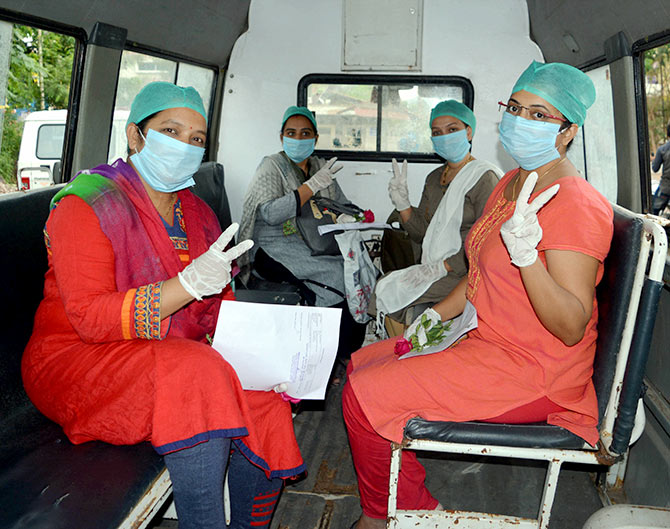Cipla is among the three Indian companies that signed a non-exclusive licensing agreement with US-based Gilead Sciences to make and distribute the latter’s repurposed Ebola drug Remdesivir in 127 countries including India.

Mumbai-based drug maker Cipla is working on different therapies for the novel coronavirus, including its newly licensed Remdesivir, the anti-HIV drug combination (Lopinavir and Ritonavir) as well as the biologic drug Tociluzumab from Roche, which it exclusively sells in India.
Besides, the company is reworking its domestic market sales strategy, and scrutinising its capital and operating expenditure plans.
Cipla is among the three Indian companies that signed a non-exclusive licensing agreement with US-based Gilead Sciences last week to make and distribute the latter’s repurposed Ebola drug Remdesivir in 127 countries including India.
Cipla has started working on the project, and the process of technology transfer is on.
The company did not wish to give a timeline for the launch of the drug or pricing.
“Cipla is the sole agent of Roche’s anti-inflammatory drug Actemra in India, which can be used on patients with severe lung problems.
"It is one of the possible treatment options being explored for Covid-19 in addition to Remdesivir, Favipiravir, and Lopinavir/Ritonavir.
"The drug is currently undergoing clinical trials worldwide,” said Kedar Upadhye, global CEO, Cipla.
As for Actemra, industry sources indicate that it has so far shown positive results.
Some of the public hospitals in Mumbai are administering the drug to severely sick Covid-19 patients.
“Initial results show that the viral marker gets eliminated and the viral load comes down significantly when one uses the drug for two to three days,” said an industry source.
Companies are changing strategies to adapt to the Covid-19 zoning - red, green and orange zones.
Updahye said earlier the reviews (sales or performance) would be therapy wise and region wise (like north zone or south zone etc).
Now they were looking at it more from a zone perspective.
“Our review systems have changed. We track our performance more in terms of zoning now,” he said.
He added: “About 20-25 per cent of our filed staff is in the green zones, and they are in the market.
"They are meeting doctors following social distancing norms, and they are also visiting chemists.”
These initiatives are generating prescriptions.
Upadhye, however, feels that in the coming weeks there can be regulations on how field force can meet doctors.
The number of visits would obviously come down per medical representative - from let’s say 20 visits a day to eight or ten at best.
The balance would shift to tele-consultations.
“We are calling it the re-imagining of the field detailing as we have to live with this now,” Upadhye said.
Does this situation encourage the firm to focus on over-the-counter (OTC) products that do not require prescriptions? Upadhye does not think so.
He said Cipla recently did a webinar which was attended by 6,000 doctors.
So doctor outreach and engagement will become digital.
Also, the OTC list for medicines in India is a smaller one, and therefore focus on consumer and OTC cannot replace the focus on conventional prescription medicines.
The underlying model would largely remain the same, he added.
Cipla registered a 12 per cent growth in its domestic business in the March quarter, a third straight quarter of double-digit growth in its India business.
However, going forward, Cipla does estimate some de-stocking happening at the stockist or distributor level, as there is a liquidity issue in the Indian market.
This may put pressure on the overall growth of the Indian pharma market at large.
Upadhye, however, said Cipla aimed to outperform the market in terms of growth.
Capital or operating expenditure would come under greater scrutiny.
“Routine safety related, maintenance capex would continue.
"There we will not compromise. We have bifurcated capex into good cost and bad cost,” Upadhye said.
Cipla’s board has approved plans to raise Rs 3,000 crore through the sale of equity shares.
Upadhye said it was only an enabling resolution, and if an opportunity comes up the first option would be to raise debt.
“We do keep looking for potential targets for acquisition, but we will not buy for the sake of buying.
"It has to meet our strategic needs. And if any opportunity comes up our first option would be to raise debt and equity would be the last option. So this is only an enabling resolution,” he added.











